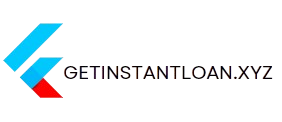Productivity refers to the efficiency with which work is accomplished, measured by the output produced per unit of input. In the context of insurance agent s, productivity is essential as it directly impacts their ability to generate sales, provide excellent customer service, and maintain a healthy work-life balance.
Highly productive insurance agents can handle more client inquiries, process applications faster, and close more sales within the same time frame. This increased output translates into higher commissions and revenue for the agent, as well as better service for clients who can have their needs addressed promptly.
Moreover, productivity allows insurance agents to optimize their time and energy, enabling them to work smarter rather than harder. By streamlining their processes and eliminating unnecessary tasks or distractions, agents can accomplish more in less time, reducing stress and improving their overall job satisfaction.
Increased productivity also contributes to better work-life balance. When agents are efficient during working hours, they can leave work at a reasonable time and dedicate their evenings and weekends to personal pursuits, family, and leisure activities. This balance is crucial for preventing burnout and maintaining motivation and engagement in their profession.
In summary, productivity is a vital aspect of an insurance agent’s success, as it directly impacts sales performance, customer satisfaction, and overall well-being. By focusing on increasing productivity, agents can unlock their full potential, achieve their professional goals, and enjoy a fulfilling career while maintaining a healthy lifestyle.
Mastering Time Management Strategies
Effective time management is crucial for insurance agents to maximize productivity and achieve their goals. By prioritizing tasks, creating a daily schedule, utilizing time-tracking tools, eliminating distractions, and leveraging automation tools, agents can streamline their workflows and focus on high-impact activities.
Prioritizing tasks is the first step in mastering time management. Agents should identify and prioritize their most important and revenue-generating tasks, such as prospecting, client meetings, and policy renewals. This approach ensures that critical activities receive the necessary attention and resources.
Creating a daily schedule is another essential time management strategy. Agents should block out dedicated time slots for specific tasks, including administrative work, client follow-ups, and prospecting efforts. By adhering to a structured schedule, agents can maintain focus and avoid distractions, ultimately increasing their productivity.
Time-tracking tools can provide valuable insights into how agents spend their time. These tools allow agents to monitor their activities, identify time-wasting habits, and make adjustments accordingly. By analyzing time-tracking data, agents can optimize their workflows and allocate their time more effectively.
Eliminating distractions and time-wasters is crucial for maintaining productivity. Agents should identify and minimize potential distractions, such as excessive email checking, social media browsing, or unnecessary meetings. By creating a distraction-free environment, agents can stay focused and accomplish more in less time.
Leveraging automation tools can significantly enhance productivity by streamlining repetitive tasks and reducing administrative burdens. Agents can utilize customer relationship management (CRM) software, document management systems, and other automation tools to automate processes, reduce manual data entry, and free up time for more valuable activities.
By implementing these time management strategies, insurance agents can optimize their workflows, increase efficiency, and ultimately drive higher productivity, leading to better client service and increased revenue generation.
Improving Communication Skills

Effective communication is the backbone of a successful insurance agent’s career. By honing your communication abilities, you can build stronger client relationships, convey complex information clearly, and ultimately increase productivity.
One crucial aspect is active listening. Instead of merely waiting for your turn to speak, truly listen to your clients’ needs, concerns, and goals. Ask clarifying questions, rephrase their statements, and demonstrate that you understand their unique situation. This active engagement fosters trust and helps you tailor your approach accordingly.
Building rapport is another essential component. Clients are more likely to work with agents they feel comfortable with and can relate to. Engage in friendly small talk, find common ground, and show genuine interest in their lives beyond the insurance realm. This personal connection can make a significant difference in client retention and referrals.
Responding promptly to client inquiries or requests is also crucial. In today’s fast-paced world, delays in communication can lead to frustration and missed opportunities. Aim to respond within a reasonable timeframe, even if it’s just to acknowledge the request and provide an estimated timeline for a more detailed response.
Finally, leverage technology to streamline and enhance your communication efforts. Utilize customer relationship management (CRM) software to keep track of client interactions, notes, and preferences. Explore video conferencing tools for virtual meetings, and consider implementing chatbots or automated messaging systems to provide quick responses to common inquiries.
Streamline Lead Generation and Optimize Sales Pipelines
Effective lead generation is crucial for insurance agents to build a steady stream of potential clients. By streamlining the lead generation process, agents can focus their efforts on the most promising prospects, increasing their chances of closing sales. This can be achieved by leveraging various strategies, such as targeted marketing campaigns, referral programs, and leveraging online platforms and directories.
Once leads are generated, it’s essential to have an optimized sales pipeline in place. This involves establishing a structured process for nurturing and qualifying leads, ensuring that agents prioritize their time and resources on the most viable opportunities. By implementing a well-defined sales pipeline, agents can track their progress, identify bottlenecks, and make data-driven decisions to improve their conversion rates.
Utilizing Customer Relationship Management (CRM) tools can significantly enhance the lead generation and sales pipeline management processes. CRM software allows agents to centralize and organize client information, track interactions, set reminders for follow-ups, and analyze data to identify trends and areas for improvement. By leveraging the power of CRM tools, agents can streamline their workflows, increase efficiency, and ultimately boost their productivity.
Continuous Learning and Professional Development
Staying up-to-date with the latest industry trends, regulations, and best practices is crucial for insurance agents to maintain a competitive edge and provide exceptional service to their clients. Attending training programs, obtaining relevant certifications, and actively networking with peers can significantly enhance an agent’s knowledge and skills.
Participating in industry-specific conferences, seminars, and workshops offers valuable opportunities to learn from experts, gain insights into emerging trends, and acquire practical strategies for improving productivity. Additionally, obtaining certifications demonstrates a commitment to professional development and can increase credibility with clients.
Networking with fellow insurance professionals can facilitate the exchange of ideas, best practices, and potential collaboration opportunities. Establishing connections with experienced mentors can provide invaluable guidance, support, and advice, enabling agents to navigate challenges more effectively and accelerate their professional growth.
By embracing continuous learning and professional development, insurance agents can stay ahead of the curve, adapt to changing market conditions, and deliver superior service, ultimately driving increased productivity and success in their careers.
Creating a Productive Workspace
A well-designed workspace can significantly impact an insurance agent’s productivity. Start by minimizing distractions and creating a dedicated area for work, free from clutter and noise. Invest in ergonomic furniture, such as an adjustable desk and chair, to prevent physical strain and discomfort during long working hours.
Virtual workspaces have become increasingly popular, allowing agents to work remotely or on the go. Leverage cloud-based tools and collaboration platforms to access client information, documents, and communication channels from anywhere. This flexibility can enhance productivity by enabling agents to work during their most productive hours and eliminate commute time.
Maintaining a healthy work-life balance is crucial for sustained productivity. Encourage agents to take regular breaks, exercise, and engage in activities outside of work to prevent burnout. Implement flexible scheduling options, such as remote work or compressed workweeks, to accommodate individual preferences and promote a better work-life integration.
Fostering Team Communication and Collaboration
Effective communication is the backbone of any successful team. Insurance agents often work independently, but fostering a collaborative environment can significantly boost productivity. Regular team meetings, both virtual and in-person, allow agents to share best practices, discuss challenges, and brainstorm solutions. Encourage open dialogue and create a safe space for agents to voice their concerns or ideas.
Leverage project management tools and communication platforms to streamline information sharing and task coordination. These tools can help agents stay organized, track progress, and ensure everyone is on the same page. Implement a system for sharing client updates, policy changes, and industry news to keep the team informed and aligned.
Promoting a culture of collaboration can also enhance productivity. Encourage agents to support one another, share leads or referrals, and work together on complex cases. Cross-training and mentorship programs can further foster knowledge sharing and skill development within the team.
Setting Goals and Tracking Progress
![]()
Setting SMART Goals: To increase productivity, insurance agents should set Specific, Measurable, Achievable, Relevant, and Time-bound (SMART) goals. These goals should align with the agency’s objectives and be tailored to individual strengths and areas for improvement.
Establishing Key Performance Indicators (KPIs): Identify and track key performance indicators (KPIs) that directly impact productivity. Common KPIs for insurance agents include the number of calls made, appointments scheduled, policies sold, and customer satisfaction ratings.
Monitoring Progress: Regularly monitor progress towards achieving goals and meeting KPI targets. Use data tracking tools or spreadsheets to record and analyze performance metrics over time. This allows agents to identify areas of strength and weakness, and make necessary adjustments.
Conducting Regular Self-Evaluations: Engage in regular self-evaluations to assess progress, identify challenges, and develop strategies for improvement. This practice promotes self-awareness and accountability, which are essential for sustained productivity.
Seeking Feedback: Actively seek feedback from supervisors, colleagues, and clients. This external perspective can provide valuable insights into areas for improvement and help identify blind spots that may be hindering productivity.
Promoting Work-Life Balance and Self-Care
Maintaining a healthy work-life balance is crucial for insurance agents to prevent burnout, reduce stress, and sustain productivity in the long run. Recognizing the importance of taking breaks, engaging in hobbies, and spending quality time with loved ones can help agents recharge and approach their work with renewed energy and focus.
Stress management techniques, such as mindfulness practices, exercise, or seeking professional counseling when needed, can equip agents with the tools to cope with the demands of their job more effectively. Prioritizing self-care activities like getting enough sleep, maintaining a balanced diet, and engaging in relaxing activities can contribute to overall well-being and resilience.
Setting clear boundaries between work and personal life is also essential. This may involve establishing specific work hours, avoiding checking emails or taking work-related calls during personal time, and learning to say “no” to additional commitments when feeling overwhelmed.
Leveraging support systems, whether it’s a supportive team, a mentor, or a professional network, can provide insurance agents with a sense of community, guidance, and a safe space to discuss challenges and seek advice. Building a strong support network can help agents feel less isolated and more motivated to maintain their productivity levels.
Productivity Success Stories: Real-World Examples
Insurance agents who have implemented effective productivity strategies have seen remarkable improvements in their performance and overall success. One such agent, Sarah Johnson from Acme Insurance, shared her experience of adopting a time-management technique called the “Pomodoro Method.” By breaking her workday into focused 25-minute intervals followed by short breaks, she found herself more engaged and less prone to distractions. As a result, Sarah reported a 20% increase in her daily task completion rate and a noticeable improvement in her work-life balance.
Another agent, Michael Lee from Zenith Insurance, credited his productivity boost to leveraging technology and automation. He implemented a customer relationship management (CRM) system that streamlined his client communication, follow-ups, and task tracking. Michael also automated repetitive administrative tasks, freeing up valuable time for client acquisition and retention efforts. Within six months, he saw a 25% increase in his monthly sales figures and a significant reduction in missed opportunities due to better organization.
At Apex Insurance, a team of agents adopted a collaborative approach to productivity. They formed accountability groups where they shared their goals, celebrated wins, and supported each other through challenges. This fostered a positive and motivating environment, leading to increased motivation and a collective sense of purpose. The team reported higher job satisfaction, improved customer service ratings, and a 15% increase in overall productivity within the first year of implementing this strategy.
These real-world examples demonstrate the tangible benefits of embracing productivity strategies tailored to individual needs and work environments. By consistently implementing such methods, insurance agents can unlock their full potential, better serve their clients, and achieve greater professional success.
Identifying and Overcoming Productivity Roadblocks
As an insurance agent, maintaining productivity can be a constant challenge. From procrastination and lack of motivation to burnout and distractions, various roadblocks can hinder your ability to perform at your best. However, by identifying these obstacles and implementing effective strategies, you can regain control and maximize your productivity.
Procrastination is a common productivity killer. It’s easy to fall into the trap of delaying tasks, whether it’s making follow-up calls, updating client records, or preparing for appointments. To combat procrastination, break down larger tasks into smaller, more manageable steps and set specific deadlines for each step. Additionally, eliminate distractions by turning off notifications on your devices and creating a dedicated workspace free from clutter.
Lack of motivation can also severely impact your productivity. When you lose sight of your goals or feel disconnected from your work, it can be challenging to find the drive to push forward. To reignite your motivation, remind yourself of your “why” – the reason you chose this career path and the positive impact you can have on your clients’ lives. Celebrate small wins and milestones along the way, and consider setting achievable goals that align with your long-term vision.
Burnout is another common roadblock for insurance agents. The demands of the job, coupled with the emotional toll of dealing with clients’ concerns and challenges, can leave you feeling drained and exhausted. To prevent burnout, prioritize self-care by maintaining a healthy work-life balance, engaging in stress-relieving activities, and seeking support from colleagues or a mentor when needed.
By proactively identifying and addressing these productivity roadblocks, you can cultivate a more focused and efficient work environment, ultimately leading to increased success and job satisfaction as an insurance agent.
Fostering an Adaptable Mindset
In the dynamic insurance industry, embracing change and cultivating a growth mindset are crucial for boosting productivity. Agents who remain rigid and resist evolving trends may find themselves falling behind their more adaptable counterparts. Encourage your team to view challenges as opportunities for growth and continuously seek ways to enhance their skills and knowledge.
Regularly review and adjust strategies to align with industry developments and customer preferences. Conduct periodic assessments to identify areas for improvement and implement necessary changes promptly. Celebrate small wins and learn from setbacks, using them as catalysts for growth and innovation.
Staying agile and adaptable is key to thriving in a rapidly evolving industry. Encourage your agents to embrace new technologies, techniques, and best practices that can streamline processes and improve customer experiences. Foster an environment that values continuous learning and professional development, empowering your team to stay ahead of the curve and deliver exceptional service.
10. Conclusion
Increasing insurance agent productivity is crucial for success in the competitive insurance industry. By implementing the strategies outlined in this guide, such as leveraging technology, streamlining processes, effective time management, continuous learning, and maintaining work-life balance, agents can significantly boost their productivity and achieve better results.
Remember, productivity is not a one-time effort but a continuous journey of improvement. Regularly review your strategies, seek feedback, and make adjustments as needed. Embrace a growth mindset and stay committed to enhancing your productivity.
Take action today by identifying the areas where you can implement these strategies. Start small, celebrate your wins, and gradually incorporate more strategies into your routine. Consistent effort and dedication will lead to increased productivity, job satisfaction, and ultimately, greater success in your insurance career.



